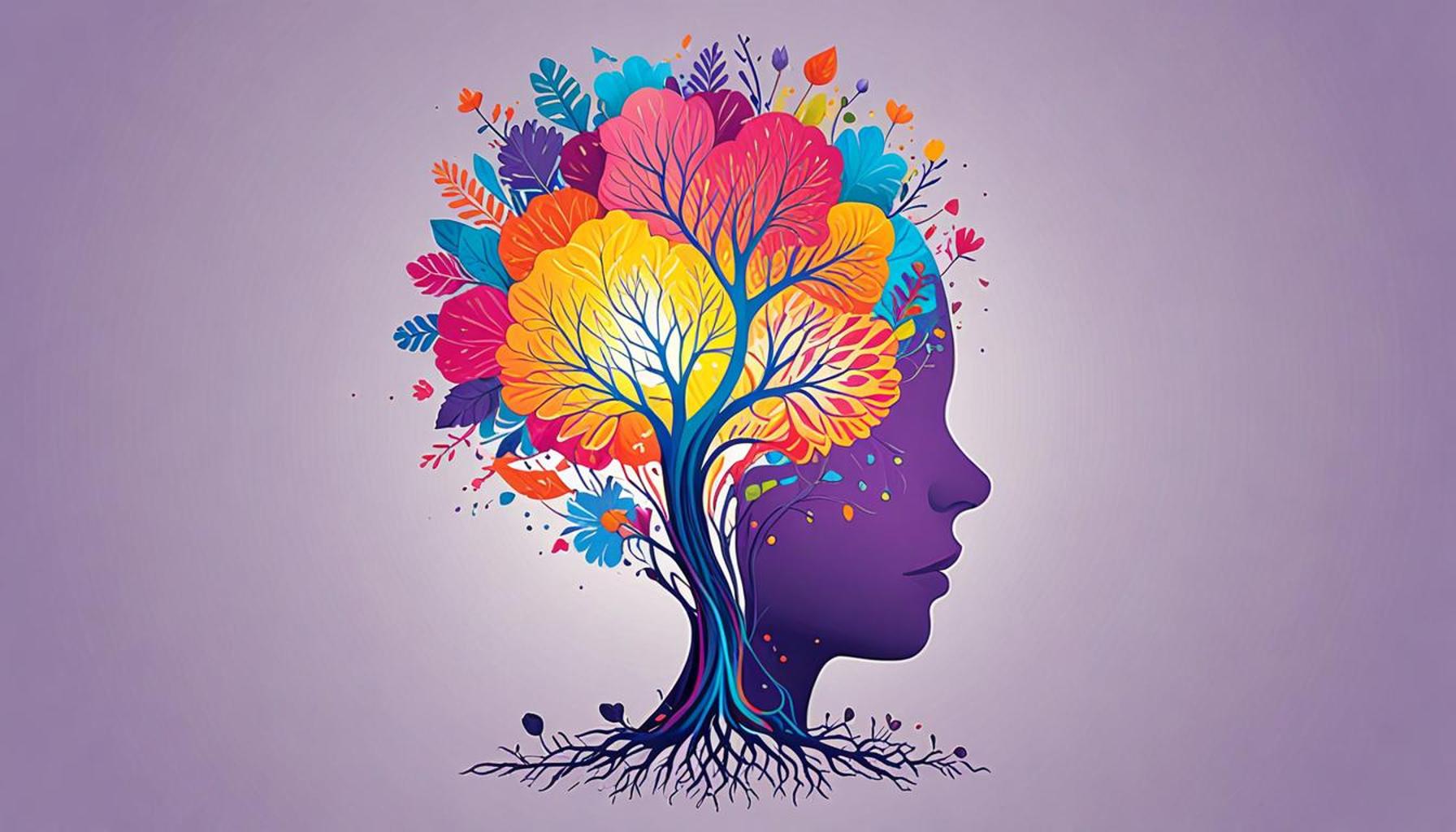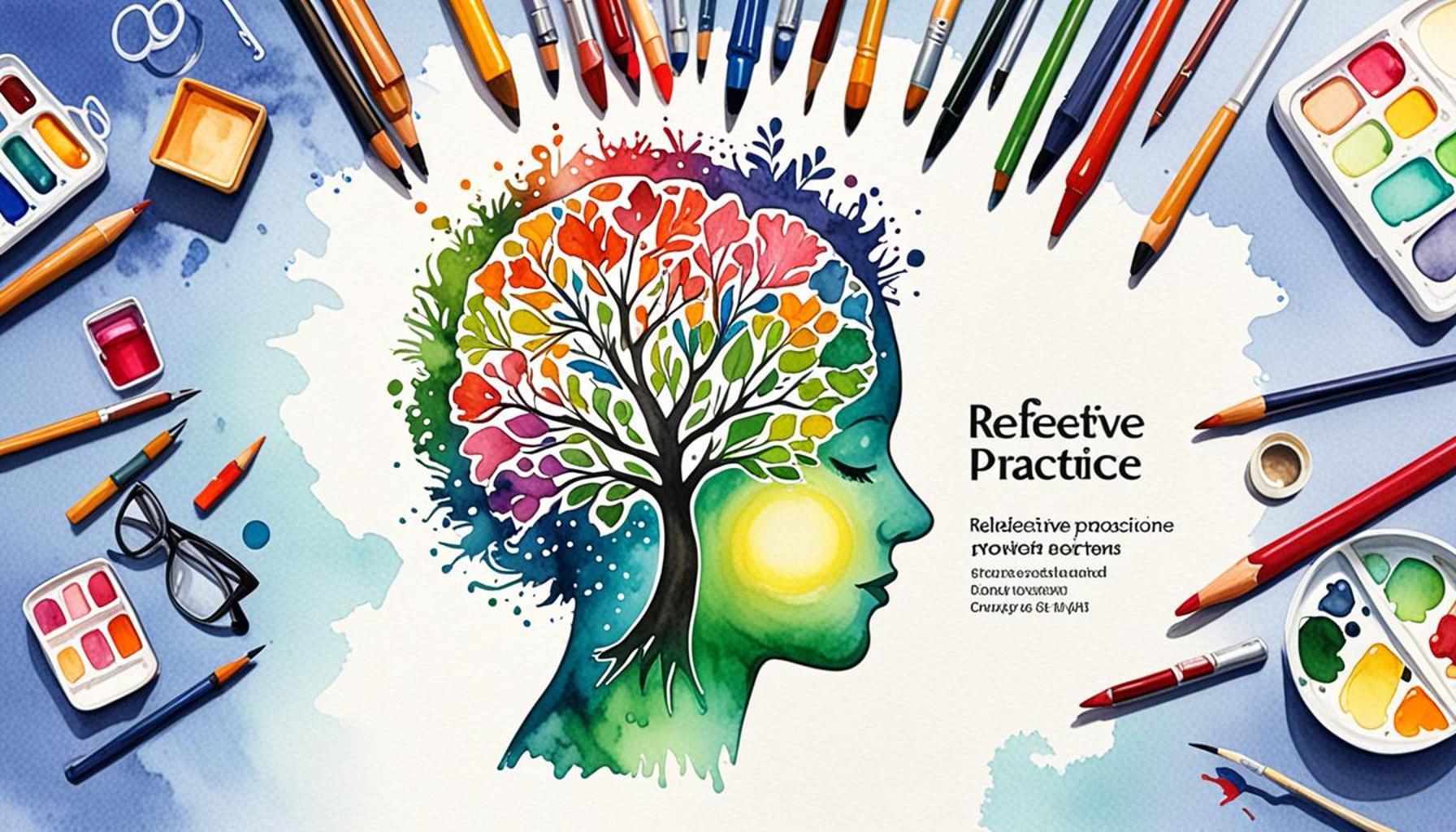The Importance of Reflective Practice in Developing a Growth Mindset

Harnessing the Power of Reflection for Personal Growth
In an era characterized by rapid change and increased demands, the ability to navigate one’s journey of personal and professional development is more important than ever. One practical strategy that has gained traction is reflective practice, which allows individuals to pause, think critically about their experiences, and draw valuable lessons for future endeavors.
Reflective practice encourages a deep examination of one’s actions, thoughts, and emotions, leading to greater self-awareness. This method is not just a casual review but involves a structured approach to understanding what worked well and what didn’t, which is essential for making informed changes moving forward. For those striving to cultivate a growth mindset, this practice reinforces the belief that with commitment and effort, skills and competencies can be enhanced over time.
- Encourages self-awareness: Regular reflection promotes understanding of personal strengths and weaknesses, helping individuals set realistic goals.
- Promotes resilience in the face of challenges: By reframing failures as learning opportunities, reflective practice helps individuals adopt a more positive outlook toward adversity.
- Supports continuous learning and adaptation: Engaging in reflection ensures that individuals are open to new techniques and improvements.
The integration of reflective practices in various fields is evident worldwide, including in Nigeria, where the educational sector is increasingly exploring innovative methods. Educators are utilizing reflective practices in their classrooms to foster an environment where students actively engage in their learning processes. This practice not only empowers students to assess their performances but also instills the core attributes of a growth mindset.
- Participating in peer feedback sessions: Collaborative evaluations allow students to learn from one another, fostering an atmosphere of mutual growth and development.
- Keeping a reflective journal: Writing down daily reflections helps consolidate learning and offers a tangible record of progress and insights.
- Engaging in self-evaluation: Encouraging students to assess their own work and set goals propels them towards self-improvement.
By embracing reflective practice, individuals can transform their approach to challenges and setbacks. In Nigeria, where the spirit of resilience is strong, adopting such strategies aligns perfectly with the country’s ethos of overcoming obstacles and striving for excellence. As readers explore the profound implications of reflection, they will uncover pathways to not only enhance their personal and professional lives but also inspire a culture of lifelong learning within their communities.
SEE ALSO: Click here to read another article
Understanding Reflective Practice and Its Role
The concept of reflective practice is fundamental to achieving personal growth and development, particularly in cultivating a growth mindset. At its core, reflective practice is about taking the necessary time to think back on experiences, analyze outcomes, and glean valuable insights that can guide future actions. This cycle of reflection leads to constructive self-critique, enabling individuals to make smarter decisions and adapt more effectively to challenges.
In the context of Nigeria, where the educational and professional landscapes are evolving rapidly, the application of reflective practice can play a pivotal role in shaping future leaders and innovators. Recognizing how one’s perspectives influence their responses to challenges can enhance resilience and adaptability, two characteristics essential for thriving in competitive environments.
One of the most significant benefits of engaging in reflective practice is its capacity to foster self-awareness. Individuals who regularly reflect on their actions and decisions gain insight into their personal strengths and weaknesses. This process can inspire individuals to set realistic and achievable goals. For instance, a student reflecting on their performance in a math examination might realize that while they excel in calculations, they struggle with time management. Acknowledging this oversight would encourage them to adopt strategies to improve, such as practicing under timed conditions.
- Enhancement of critical thinking skills: By continuously evaluating their own thoughts and actions, individuals enhance their ability to think critically, fostering more informed decision-making.
- Increased motivation: Reflecting on progress and achievements can boost self-confidence, motivating individuals to pursue further challenges, embracing the idea that effort leads to improvement.
- Promotion of emotional intelligence: Recognizing and understanding emotions, both in oneself and in others, is vital for effective interpersonal interactions. Reflective practice strengthens this aspect significantly.
Moreover, reflective practices also equip individuals with tools to view challenges as opportunities for learning—an essential principle of a growth mindset. For example, Nigerian entrepreneurs often face a myriad of obstacles, from infrastructural deficiencies to market fluctuations. However, those who engage in reflection are more likely to reframe failures into stepping stones for future success. By analyzing what went wrong and identifying alternative approaches, entrepreneurs can develop not only resilience but an unshakeable commitment to improvement.
Reflective practice is not limited to individual application; it can transform group dynamics as well. In various organizations across Nigeria, teams that engage in reflective sessions often find that they communicate better and collaborate more effectively. Whether through structured peer reviews or shared reflections at the end of project cycles, cultivating an atmosphere where team members feel safe to critique and learn from each other fosters collective growth.
The interplay between reflective practice and a growth mindset illustrates the critical role that ongoing reflection plays in navigating an ever-evolving world. By embracing this approach, individuals can ensure they are not just reacting to circumstances but actively shaping their futures.
The Role of Reflection in Personal Development
Reflective practice is not merely an academic exercise but a fundamental component that enhances the individual’s capability to foster a growth mindset. Engaging in regular reflection allows individuals to assess their experiences, understand successes and failures, and cultivate self-awareness. This process significantly bolsters the development of a growth mindset by encouraging the belief that abilities and intelligence can be developed through dedication and hard work.Additionally, reflective practice helps in pinpointing specific areas where improvement is needed. By examining past experiences, individuals can derive powerful lessons that inform their future actions. This approach leads to a continuous cycle of learning and growth, as one becomes increasingly adept at taking constructive feedback and applying it meaningfully. Notably, it transforms what might initially be perceived as setbacks into opportunities for personal and professional development.Moreover, reflective practice can also influence one’s emotional resilience. Challenging experiences become less daunting when viewed through the lens of learning rather than failure. This perspective shift is crucial as it can significantly reduce anxiety associated with performance and foster a more positive attitude toward challenges.Lastly, by integrating reflective practices into daily routines—such as journaling, meditating, or engaging in discussions with peers—individuals can create a supportive environment that nurtures growth. Such practices not only assist in tracking progress but also solidify the mindset that embracing challenges ultimately leads to greater achievements. For those looking to deepen their understanding of how reflective practice interacts with and enhances a growth mindset, it is essential to explore various methodologies and strategies that can be adopted in daily life.
RECOMMENDED: Check out this similar article
Transforming Failures into Learning Opportunities
One of the most remarkable aspects of reflective practice is its ability to transform failures into valuable lessons. In a dynamic environment like Nigeria, characterized by rapid changes and uncertainties, this transformation can be crucial for success. Individuals and organizations that embrace reflective practice cultivate a culture of continuous learning. They adopt a mindset that views setbacks as part of the growth journey rather than insurmountable obstacles.
Consider the Nigerian tech scene, which has experienced significant growth in recent years. Startups frequently encounter challenges, from funding shortages to regulatory hurdles. However, it is those entrepreneurs who engage in reflective practice—analyzing their failures and understanding the variables involved—who are more likely to pivot successfully. By asking questions such as “What could I have done differently?” or “What did I learn from this experience?” entrepreneurs tap into the very essence of a growth mindset. This practice not only increases their chances of future success but also contributes to the overall innovativeness of the industry.
Furthermore, institutions like universities and training centers in Nigeria play a crucial role in fostering reflective practice among students. Through structured feedback mechanisms, faculty encourage students to reflect on assignments, projects, and even collaborative efforts. For instance, a university may create a reflective portfolio framework, where students document their learning journey, challenges faced, and how they overcame them. Such initiatives not only enhance academic performance but also prepare students to adapt to the professional realm with a clear grasp of their competencies.
- Creating a Habit of Regular Reflection: Just as exercise strengthens the body, regular reflection strengthens the mind. Setting aside specific times for reflection can lead to deep insights over time. Whether through journaling, self-assessment interviews, or discussions with mentors, embedding reflection into routine creates strong muscle memory for learning.
- Integration of Reflective Practice in Workplaces: Organizations that formally integrate reflective practice into their cultures, through mentorship programs or peer review systems, often witness heightened employee engagement. By fostering a space where employees are encouraged to reflect on their experiences, organizations can enhance innovation and workplace satisfaction.
- Utilization of Technology for Reflection: In the digital age, various tools can aid reflective practice. Mobile apps and platforms dedicated to journaling and feedback collection can streamline the reflection process, making it more accessible to individuals in Nigeria. For instance, an app could guide users through prompts aimed at assessing their performance in real-time, facilitating immediate reflection.
Moreover, the communal aspect of reflective practice cannot be overlooked. Group reflections—whether within classrooms, workplaces, or community settings—enable individuals to share their experiences and insights. This sharing enhances collective learning and builds a robust support system designed to foster growth. In Nigeria, community workshops focused on reflective practices can serve as platforms for shared learning experiences, where participants discuss their challenges and triumphs.
The importance of reflective practice extends beyond individual gains; it fosters a culture of resilience and adaptability within society. By encouraging individuals to not only think about their experiences but also act upon those reflections, we create a populace empowered to navigate complexities and embrace change with a growth mindset.
CHECK OUT: Click here to explore more
Conclusion
In conclusion, reflective practice emerges as a vital tool for fostering a growth mindset, particularly in dynamic settings like Nigeria. By embracing introspection, individuals and organizations can convert setbacks into stepping stones for success. The journey of personal and professional development becomes enriched through the insights gained from reflective dialogue, enabling individuals to adapt and thrive amidst ever-evolving challenges.
As seen through the experiences of entrepreneurs in Nigeria’s burgeoning tech ecosystem, the capacity to learn from failures is pivotal. It not only drives innovation but also instills a culture that sees challenges as opportunities for collective growth. Furthermore, educational institutions play an instrumental role in nurturing reflective practices among students, equipping them with the necessary skills to navigate future complexities with confidence.
In today’s digital landscape, leveraging technology for reflection presents new avenues for accessibility and engagement, aiding individuals in documenting their journeys and analyzing their progress. Regular reflections, both individually and as part of group discussions, can enhance learning experiences, creating communities that uplift one another. This communal aspect amplifies the impact of reflective practice, reinforcing the notion that learning is a shared journey.
Ultimately, investing in reflective practice is not just a personal endeavor; it is a societal shift towards a resilient and adaptable populace. By embedding reflective practice into daily routines and organizational cultures, we set the stage for a future where individuals not only confront challenges but transform them into catalysts for growth. This paradigm shift is essential for navigating the complexities of our world, equipping us all to thrive in an ever-changing landscape.


